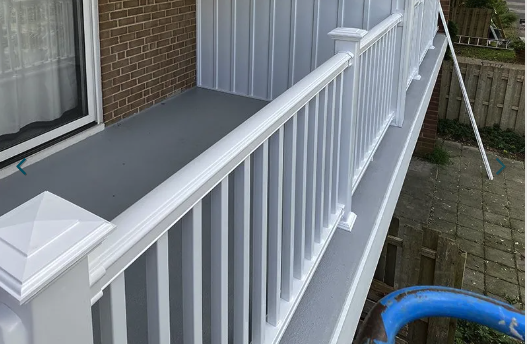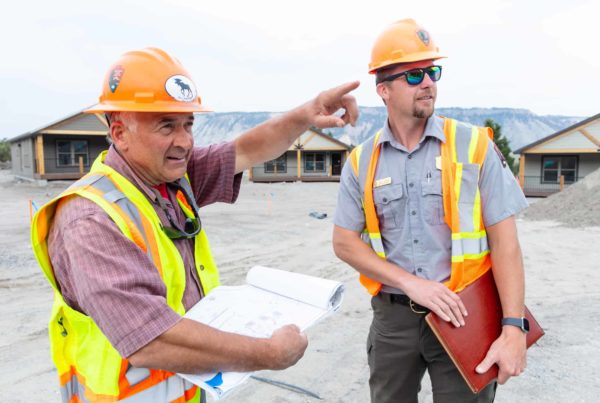It was a dark and stormy night, Friday, July 21, 2006. Dark – electricity was out in the Borough of Stockton, NJ on the Delaware River. Stormy – all day, it had been hot, humid, overcast and threatening. Now intense thunderstorms were hitting town.
Tricia Romano, P.E., and I had just returned from inspecting flood damage at condominiums in the Delaware Water Gap. Finishing up a few administrative tasks in the office, the power went out. With all of the computer UPS’s chirping, it was time to go home.
Our office was the second floor of a post and beam barn. The owner lived in the large Victorian on the parcel. The barn was back from the road, not visible from the street.
What follows is instructive of what can happen when disaster strikes. Hopefully, business partners especially, and readers in general, will be prepared.
The phone rang at 11:30 pm. The barn owner had arrived home late to find the driveway full of fire engines. Her message – the barn was gone, burned to the ground.
Several years earlier, I had seen a business fail after a fire. They had backed up their business files on floppy disks, stored in a fire proof safe on their premises. The heat had destroyed the plastic floppies. That lesson remained with me. We had records of everything:
- Equipment model and serial numbers
- Professional and personal libraries
- Office equipment and furniture
- Office supplies
- Computers and software
- Photographs of everything
All documents were electronically stored on the office server and hard copies were kept off site . . . what about software? A freeware called Belarc does the work. When run, it scans a workstation and identifies every hardware component in the machine. Then, it scans the operating system and identifies every update and patch. Finally, it lists all the applications, their versions and all license information.
Now for the backups. No floppies! In 2006, the technology was not as simple as today. We relied on DVDs recorded weekly and stored off site. At least four weeks were kept before the disks were overwritten.
Insurance – make sure you have more than just general liability and the standard business package. Our agent had recommended a business interruption policy that included coverage for relocating the office, as well as loss of revenue during the recovery.
All of that was done in preparation and we were about to find out how important it was.
Saturday morning, daylight arrived and we went to the fire scene to see how bad it had been. A few parts of the exterior wood walls remained. The interior was a complete loss. The remains of the slate roof littered the charred debris. I found the computer server. The hard drive warped by the heat and the case open and the platters exposed. Not even the FBI was going to recover data from that hulk.
The recovery now became the priority. A quick few notes:
- Establish communications
- Advise staff
- Notify clients with work in progress
- Set up emergency office
- Restore client files and financial data
- Continue work on client projects and meet their expectations
- Locate at least temporary office space
The first call was to the independent contractor who had set up the office phones. Could those phone numbers be transferred to my house phone? Yes, they were transferred by Saturday afternoon. The second call was to the independent contractor who had set up our IT system: spec out a new server, workstations, printers, plotters, routers, hubs, operating system. Everything was ordered by Monday morning. The server was not off the shelf. It would take a week for assembly and testing. I cannot emphasize enough the importance of those two independent contractors. We had paid them without a quibble about their invoices and immediately. In an emergency, I wanted their immediate attention. We got it!
Next was our insurance agent. On Saturday, their call back was within an hour; from the agency president: “Document all the losses but get back to business as soon as possible. Your claims representative is Diana, her direct number is . . . at what number can she reach you?”
Monday morning, the staff assembled in my home office where I had started Lockatong Engineering in 2001. Engineers – contact clients with projects underway. Continue reports with as much as could be recollected before memory faded. Administrative staff – order supplies, contact clients and vendors, look for office space, get those client reports delivered, restock the technical library and replace the personal libraries.
Amazingly, it worked. We found temporary space in a recently unoccupied dentist office in Stockton and were in it in a week. The computers arrived on schedule. To my horror, the most recent DVD backup of financial records wouldn’t restore. The one from the week earlier did. New phones in the temporary office restored all our lines on the day we moved in. And best, client deliverables made it when promised.
Then there was the insurance. It was a full property recovery. Our documentation was rock solid. The insurer had never seen such a complete and comprehensive record. We recovered the cost of setting up the temporary office and, six months later moving to the space we occupy today. Our accountant was able to document a lower second half of year revenue than we had enjoyed every prior year. Business interruption insurance covered that loss too.
So what were the lessons?
- Document everything – no detail is too small.
- Have the right insurance – a few dollars saved on the premium is not worth it.
- Take good care of your critical vendors; they will be there when you need them the most.
- Have a plan for recovery – specific tasks, assignment to the right staff person, and expectation of completion.
- Be optimistic – feeling sorry for yourself won’t get it done. Besides, you planned for disaster. Now, work the plan.
- Backups are critical – online cloud backups are continuous and inexpensive today. Extra cautious, we still backup daily to off-site stored portable hard drives.
Back to the dark and stormy night. About 8:00, a lightning strike lit up a utility transformer out on the street. Volunteer firemen put out the fire by 9:00 and went home. But now, the phone lines were down too. No alarm would be coming from the barn. Perhaps it was the lightning strike that took out the transformer, or maybe another. The bolt traveled down the 300 ft. service cable to the barn, entered the internal wiring and flowed to where it could arc to ground. The fire started in a first floor exterior wall. By the time a neighbor saw the blaze, the barn was fully engulfed in flames. Volunteer firemen had their second call of the night. There was nothing left to save.
August 2017
Robert N. Roop is a Professional Engineer with over 40 years of experience in providing engineering services. He is responsible for the process and execution of all engineering projects at Lockatong Engineering. The firm’s focus is comprehensive investigations and design of buildings and associated property.

